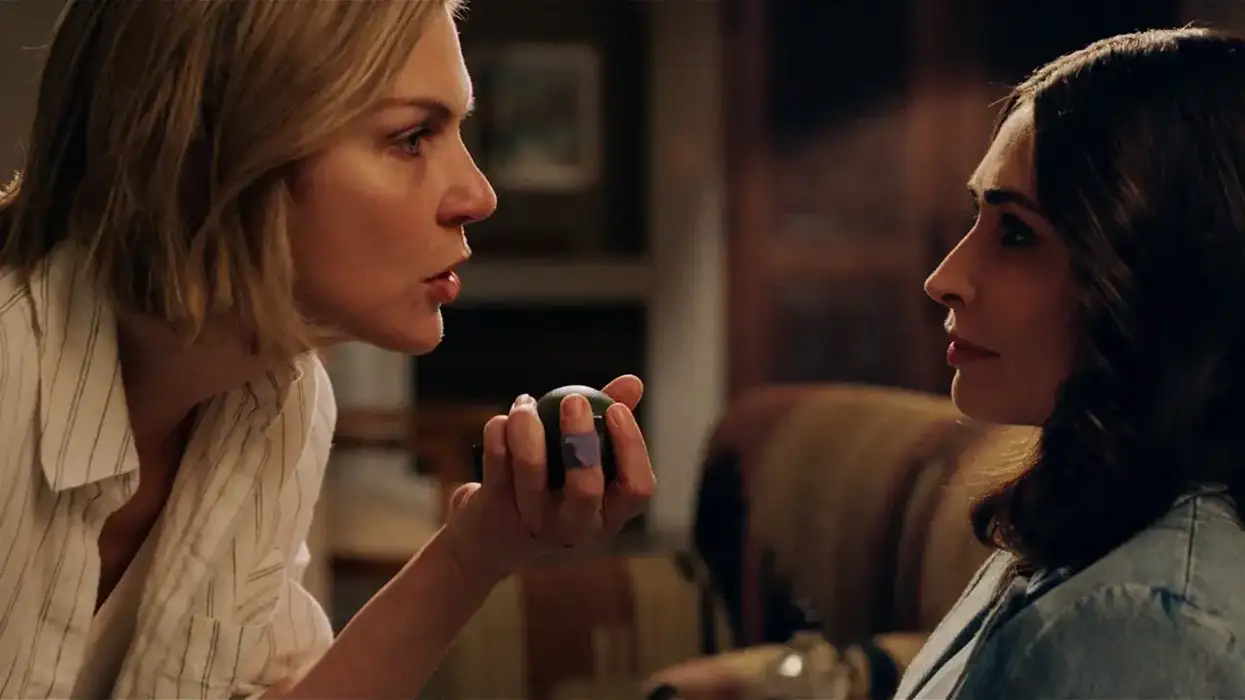While hipsters and horror fans are getting high on the multiplex terror of Hereditary this weekend, scarier family horrors have landed in Los Angeles: An unhinged Bristol Old Vic production of Eugene O'Neill's Long Day's Journey Into Night, direct from the West End and the Brooklyn Academy of Music. The playwright's landmark masterpiece is a daunting challenge for actors and audiences alike, an eternally tough sell, inexhaustible but exhausting. This production, directed by Richard Eyre and featuring a company of bold-lettered English talent, is well aware of the drama's pitfalls, but they nonetheless go at it with the vitality and abandon of a rugby team. Notably, this Journey is shortened slightly from its average runtime to a comparatively snappy three-and-a-half hours through a little judicious editing, but mostly with its breakneck pace: O'Neill's roomy, four-act chamber epic is tackled here with Sorkinesque wham-bam-pow.
Related | A Conversation With Wayne Koestenbaum: "Some People Just Need a Timely Intervention"
For those unfamiliar with the story, I'll give you what you need to know. The title is not false advertising. Long Day's Journey Into Night places us in the living room of a seaside summer house, and leaves us there from breakfast until the wee hours. An aged stage actor and his two adult sons - all bonafide drinkers - have returned for the season along with the morphine-addicted family matriarch, Mary Tyrone, the most challenging role in American repertory. And over the course of the long day, the family drinks, spars, and soliloquizes, exorcising all their most excruciating demons at great length and in agonizing depth and inspiring every family drama staged since.
Much has been made of the speed with which this company barrels through the well-known text, but I confess I felt less assaulted than electrified. A production of this play - indeed any of O'Neill's family dramas - usually comes with a lot of morbid Method molasses, the better to squeeze all the juice from the fleshy poetry of these precious texts. Certain O'Neill scholars must certainly balk at any Journey production that pumps out its first two acts in under ninety minutes, and I am familiar with this play and its towering history, but I can report that I haven't before seen all the notes of this play struck with such force. It offers the feeling of a fresh and excited engagement with an intimidating text, as well as the verbal shorthand of a brainy family of well-read intellects trapped and fueled by their grievances and grief. And after all, this is a band of committed drunks racing impatiently towards a more appropriate hour for imbibing. I think it works.
This production, more than most, is dominated by Mary Tyrone, and we have the privilege to see one of the world's greatest performers in the part: Lesley Manville, who you'll recognize from her much-memed work in last year's Phantom Thread. Her Mary is less a languid bundle of nerves than a powerful engine in need of constant repair and eternally on the edge of combustion, and her eventual psychosis feels of a piece with the all-too-earthbound despair of her housemates. Jeremy Irons is her match as James Tyrone Sr. His is intelligent work, shrewdly swaggering and hammy when necessary, underlined by riveting denialism and a commanding pride. He is at his finest in James' famous midnight pas-de-deux with Edmund Tyrone, their poetic seaman son, attacked by consumption and played by a sympathetic Matthew Beard. Rory Keenan is sharp but less engaging as James Jr., the unrepentant drunk and indiligent actor.
Rob Howell's set is beautiful though somewhat mismatched to the production. All glass from the rafters to the footlights, it shimmers, refracts, and distracts, though I saw great insight and humor in his mismatched furniture. He presents a great challenge for lighting designer Peter Mumford, whose work gets more impressive and intricate as the hours pass. Watch closely the seascape, which wraps the action in an ever-changing blue glow.
The moments that matter, though, all belong to Lesley Manville. In the third act, when Mary's unraveling cannot be reversed, even by morphine, Manville's work is bruising and breathless. Her prolonged and punishing agony must be seen to be still-not-quite-believed. It is here that the aggression of Eyre's direction, the precision of O'Neill's poetry, and the irreplaceable genius of a great actress all crash together with the blunt-force recklessness that well-trod plays occasionally need.
Austin Dale is a writer based in LA.






























